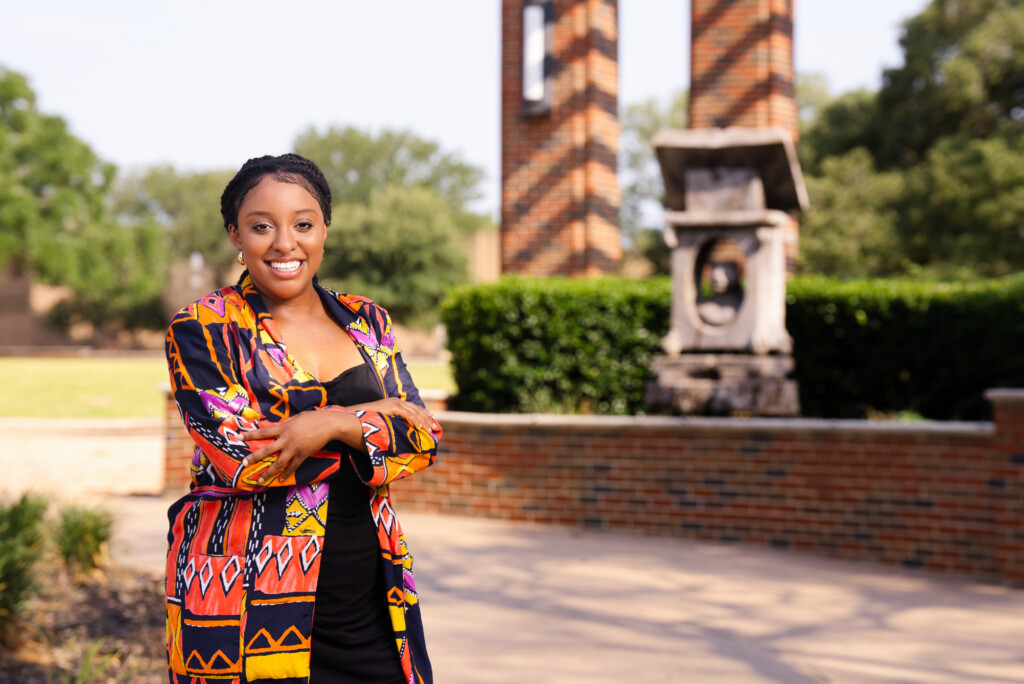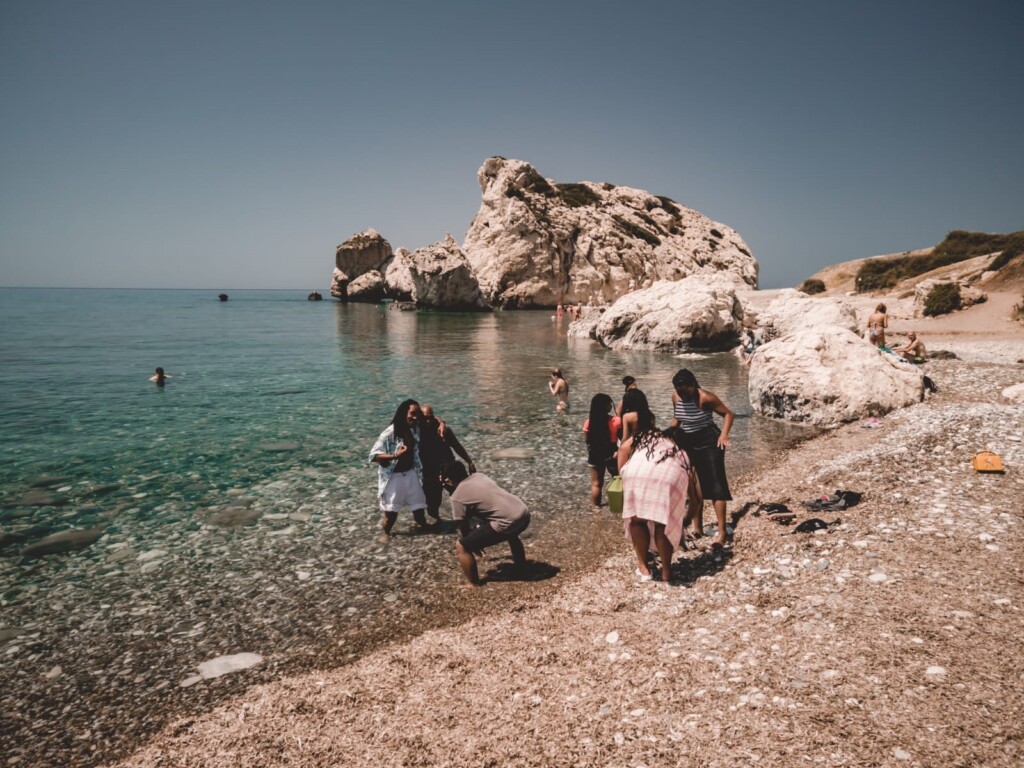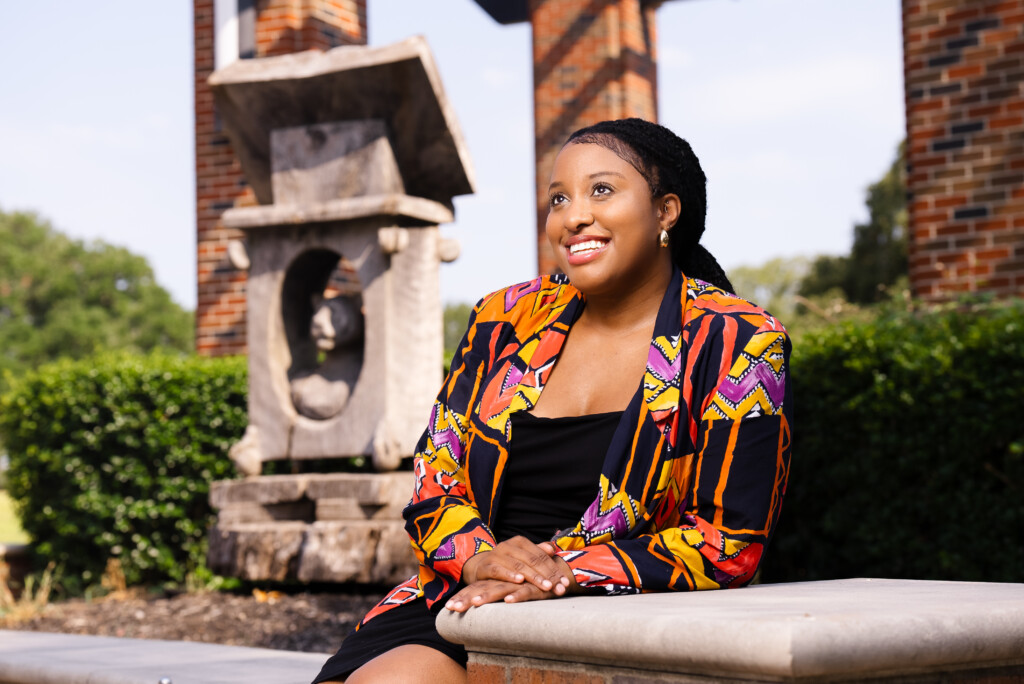 PRAIRIE VIEW, Texas (Aug. 3, 2023) – For over 70 years, the Fulbright U.S. Student Program has been a notable study-abroad exchange initiative that attracts college and university faculty, administrators, students, researchers, artists, and professionals from various countries. Sponsored by the U.S. Department of State, the Fulbright Program promotes mutual understanding between the United States and other countries.
PRAIRIE VIEW, Texas (Aug. 3, 2023) – For over 70 years, the Fulbright U.S. Student Program has been a notable study-abroad exchange initiative that attracts college and university faculty, administrators, students, researchers, artists, and professionals from various countries. Sponsored by the U.S. Department of State, the Fulbright Program promotes mutual understanding between the United States and other countries.
Selected recipients study, teach, and research to further develop their skills, increase their knowledge of other cultures and regions, and return to their home countries to share their experiences with students and colleagues. Fellows are paired with an institution and choose a concentration related to their research area and the host country.
Each year, Fulbright awards 1,700 fellowships to 800 U.S. and 900 visiting scholars who desire to nurture meaningful connections, network with global alums, leaders, and educators, and advance their careers. Fulbright alum have become heads of state, MacArthur Fellows, Pulitzer Prize recipients, and Noble Prize laureates.
For the first time, a Prairie View A&M University student will join the ranks of the prestigious program. Stephanie Tilley, a doctoral student and former employee of the University, is excited and honored to be the first to hold the title. She hopes her journey will inspire other PVAMU students to take a leap of faith.
“I want more Prairie View students to apply. Don’t be discouraged by the process or timing of things because everything happens in its timing,” she said.
Embarking on a Path of Discovery, Knowledge, and Community
A New Orleans, Louisiana native, Tilley spent many of her formative years in Watson, Louisiana, right outside Baton Rouge. Upon graduation from high school, she chose to stay close to home and completed her undergraduate studies at Loyola University New Orleans. Tilley moved to the “Lone Star State” to earn her Master’s Degree in Student Affairs in Higher Education at Texas State University.
She started her profession in academia and international programming as an assistant site director in Greece and an academic assistant in Cape Town. In South Africa, Tilley discovered a new love: Cape Town felt like home.
She became well-versed in the history of apartheid and the classification of race throughout the country, gaining a new perspective on how one’s identity is shaped and constructed. Tilley was surprised to discover that she was perceived as belonging to the Coloured racial group, a once-legal classification encompassing people with mixed ancestral connections to Africa, Europe, and Asia.
“The history of apartheid was very similar to what Black Americans experienced during segregation; as Black people, we’ve had to overcome. Learning how resilient the Black and Coloured people were was eye-opening; that stuck with me.”
Tilley connected with the South African people in a way she didn’t expect. “The people were so welcoming. They were happy to see others from the diaspora, especially Black Americans. They want more of us to come and be connected. It was refreshing, not just professionally but also personally. I cried like a baby when I had to leave.”
She’d learned about Ubuntu. In definition, the term means “I am because we are,” but in practice, it implies connection and community. “It resonated with me because it was so much of who I am. I come from humble beginnings. So many of my opportunities came from people believing in and supporting me.”
While in Cape Town, Tilley accepted a study abroad program coordinator role for PVAMU’s Office of International Programs. While at the Iziko Slave Lodge in Cape Town, the same day Tilley got the job at PVAMU, she met a group of PVAMU study abroad students led by former College of Business professor Lawrence McNeil.
“Dr. McNeil and the students were amazing,” she said. “They were friendly and excited to learn about and experience South Africa. Meeting them made me hopeful and even more excited about the possibility of working at Prairie View. Later that day, I was offered the position and knew this was the opportunity God wanted for me. I’m very spiritually rooted, and everything felt divinely orchestrated.”
By 2020, she’d enrolled in PVAMU’s Doctor of Philosophy Program to pursue her degree in educational leadership, specializing in higher education and global Black studies research.
When she learned about the Fulbright Fellowship, it seemed like destiny.
Tilley’s academic training and international experience that spans multiple continents (having also participated in programs like the Black Europe Summer School, a two-week intensive course in Amsterdam that immerses scholars in the history of Black Europeans and their origins in the Caribbean and Africa) made her a strong candidate for the fellowship.
Finding Her Village on the Path to Fellowship
The Fulbright Program is distinctly competitive and can vary in intensity and interest from year to year, country, and programming.
South Africa consistently ranks high in popularity. Even amid the competitive process, Tilley remained encouraged. “I’m led spiritually in my heart, and God was like, ‘Stephanie, this is where you need to be.’ God was greater than the competition. So, if it were meant to be, it would. I believe in doing what your heart says, what feels right. Instead of someone telling me I should choose another country or topic if I want to be competitive. Following my heart was the thing that would get me in the door and sustain me.”
The application process is daunting. Applicants must submit a project statement, a personal statement, a CV/resume, three letters of recommendation, a series of short essays, and an online application. Candidates are evaluated on their academic achievements, leadership potential, cross-cultural adaptability, and project pitch quality, applicability and feasibility.
Tilley’s village surrounded her from beginning to end, a communal effort reflective of Ubuntu. She received support, feedback, and recommendations from friends, Fulbright alums, professors, and mentors, including her professors, Stella Smith and Douglas Hermond; Nathan Mitchell, professor and university assessment coordinator; and Benjamin Simington, program coordinator of International Programs.
“This project is scholarly, but it’s also a direct reflection of how I live. So much of who I am. Family, friends, mentors and professors were with me, pushing me along,” Tilley said.
Building Bridges Across the Diaspora: Ubuntu, “I am Because We Are.”
Receiving acceptance into the Fulbright program was a full-circle moment for Tilley. The concept of Ubuntu had never left her and naturally shaped her proposed area of research.
“Something told me, ‘Stephanie focus on Ubuntu because it originated from South Africa.’ When I researched Ubuntu in South African higher education, I saw that there was literature. Yet, more was still needed, especially focusing on the diverse Black and tribal students.”
Tilley will explore the practice and presence of Ubuntu and how it supports Black and diverse students in their college experience. Although her research isn’t directly related to her dissertation on HBCUs and Black male student participation in study abroad, Tilley says it will strengthen the exploration and knowledge of her research.
She will be hosted and mentored by two professors at the University of Johannesburg. They will both assist her with her research: Mlamuli Nokulunga, a professor in the Ali Mazrui Centre for Higher Education Studies, who concentrates on theorizing higher education transformation and decolonization in South African higher education, and Lunga Shabalala, a professor in the Department of Psychology (a 2023 Fulbright Scholar), who examines the psychological implications of college students, transformation in South African higher education and Black feminism. Both professors are Ubuntu and decolonization scholars.
Tilley can’t hide her enthusiasm as she prepares for her visit to Johannesburg, the Black Mecca of South Africa. She hopes to gain a holistic experience and understanding of the culture inside and outside the classroom.
As an avid researcher, she’s identified numerous places to visit in her spare time. “I’ve made a list of things to do. I want to travel within and outside the country. I want to see other parts of South Africa.”
She plans to take Zulu classes to study the prominent tribal language. While she doesn’t expect to become fluent, she wants to learn the language spoken by Black and tribal South Africans. Tilley also intends to invest in her fitness and take dance classes, volunteer a few hours every week at a primary school or library to get comprehensive insights into the education system and connect and build with her sorority sisters of the Alpha Kappa Alpha Psi Tau Omega chapter of Johannesburg, Soweto, and Pretoria.
“My fellowship will be for nine months, which seems long. But it is going to fly by. Looking back, I want to feel like I maximized my time professionally and personally.”
Tilley looks forward to understanding more about the South African higher education system, expanding her worldview as a scholar, and her global experience. While she may encounter challenges, including adjusting to the time difference and navigating Johannesburg safely, Tilley remains optimistic. She anticipates that each challenge will be a unique opportunity to learn a new lesson.
The Fellowship is Only the Beginning
Tilley wants to see more fellows who look like her and advises other students to apply and pick a topic that resonates with them as a person and their research.
“Choose a project you connect with because it will shine through in your essay and application. If you at least try, it’s a 50/50 chance. But if you don’t, you’re not giving yourself the opportunity. You’re already telling yourself no.”
With less than 6% of scholars identifying as Black in 2016, Fulbright established the HBCU Institutional Leaders initiative in 2022 to build strong partnerships with HBCUs and encourage institutions to increase their engagement with Fulbright.
Tilley advises future scholars to fully dedicate themselves and approach the process with a plan: “The application isn’t hard, but it’s cumbersome and tedious. So, start early. Think it through and bounce ideas around. Be open to and filter through feedback to ensure alignment with your end goal. I reviewed my essays many times, but it was well worth it. You won’t have a chance unless you take a chance on yourself. Lean on your network for help. But just as they’re investing in you, you must also invest in yourself.”
Tilley is excitingly anticipating her Fulbright experience and believes it will help open her mind to understanding the depth of the Black diaspora. “My favorite part about travel is discovering us in different pockets. I love learning about other people and cultures, especially minorities. I love people in general, but I love us. Globally, we have so many different connections. We may have different cultural backgrounds and even speak different languages. But the connection, the life, and the soul are the same. You can’t fake it; you feel it.”
The Fulbright Fellowship is only the tip of the iceberg for Tilley. Working as a graduate research assistant in the Minority Achievement, Creativity, and High-Ability Center under the mentorship and support of Fred A. Bonner II and William H. Parker. Tilley has gotten a taste of academia, and she’s not turning back. Her long-term goal is to become an education or Black studies professor. She envisions a life of teaching, researching, taking students abroad and creating in different ways within a global context in a role where she gets to do what she loves daily.
By Whitney Stovall
-PVAMU-




